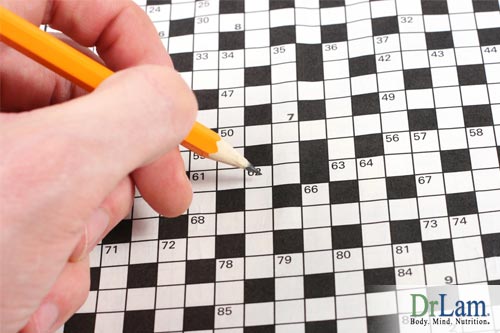
 Recent studies have revealed that those who participate in cognitive exercises, such as reading and writing, generally experiences slower late-life cognitive decline—regardless of whether they begin engaging in these activities early or late in life. There has been evidence, however, that the sooner the better the results will be. Those who begin challenging and engaging their minds at earlier periods in life and have frequent cognitive activity throughout their life tend to have the best cognitive results.
Recent studies have revealed that those who participate in cognitive exercises, such as reading and writing, generally experiences slower late-life cognitive decline—regardless of whether they begin engaging in these activities early or late in life. There has been evidence, however, that the sooner the better the results will be. Those who begin challenging and engaging their minds at earlier periods in life and have frequent cognitive activity throughout their life tend to have the best cognitive results.
This research tends to be in-line with the cognitive reserve hypothesis. This hypothesis is based on the fact that those with greater cognitive abilities, such as education and knowledge, tend to, in their later years, experience better cognitive function. In fact, it may even stunt some of the symptoms which come along with dementia even though a person experiences the same physical brain-changes associated with cognitive difficulties. There have been many different studies conducted which support this cognitive reserve hypothesis, and this is just one of the latest among them. Another similar study took a closer look at mice. These rodents had the animal-equivalent of our human Alzheimer's disease, and those mice who engaged in cognitive exercises throughout the course of their lives experienced far less memory impairment. This information can be applied to human beings in the same way. The best environmental protection against Alzheimer's disease, is, as research shows, high levels of cognitive activity throughout an individual's life.
Mental activity leads the brain to make new neurons, and this is a process which is ongoing throughout a person's life, according to brain plasticity research. Not only does this information indicate that cognitive function can be improved, it also means that cognitive decline can actually be reversed even despite an individual's age. On the other hand, brain deterioration can be the result of the lack of cognitive activities and the failure to challenge one's mind.
Dr. Michael Merzenich is a professor emeritus at the University of California and he has, for over three decades, delved into research in regards to brain plasticity. Most people are in a stage of decline by the time they reach their 30s or 40s. At this time in their life they begin thoughtlessly using abilities and skills which have been gained at an earlier point in life. The things that they do habitually, everyday, become second nature and can be done without conscious thought. This is not exactly a good thing. It means that an individual can go through their life without being at all consciously engaged in what is happening. This disengagement becomes common in later years of life and is in some ways the opposite of cognitive exercises or engagement. This is even more true due to modern culture.

The good news is that cognitive stimulus can fight back against this degeneration, but in order for it to be effective a person must be interested in what they are doing. If they enjoy doing a puzzle or learning a new instrument then there will be results, but if they do not enjoy it or are disinterested, it likely won't produce the desired effects. Lifestyle choices also play a large role in cognitive ability, and drinking water, eating and sleeping, right can all lead to a sharper mind. Cognitive exercises, such as brain games or crosswords, social activity, physical exercise, mindfulness, and learning new things can all contribute to better cognitive function.
Brain fog and having difficulty remembering simple things are common adrenal failure symptoms. Many people have adrenal fatigue without knowing it or they do not have proper help to recover, and end up living with the condition and its associated symptoms. When memory and cognition are difficult as it becomes in adrenal fatigue, it often becomes easier to give up and not keep the brain active. Compounding this fact is that adrenal fatigue sufferers often do not have the energy to exert themselves physically or mentally, leading to less cognitive engagement. If this continues over time, the lack of mental activity will surely put them at further risk for development of mental health issues such as Alzheimer's.
Keeping up your mental health, then, is just as important as keeping your body’s health. In fact, the two are intricately linked; adrenal fatigue, a condition which starts with exhausted adrenals failing to produce sufficient hormones, ends up having negative effects on memory and mood with brain fog, anxiety, and depression common amongst sufferers. In advanced stages of adrenal fatigue, the entire neuroendocrine system is in disarray. So for both physical and mental health in the long run, it is important to recover fatigued adrenals with a proper recovery program, and in addition to keep the mind sharp by regularly engaging in mental activities you can use to work out your brain.
